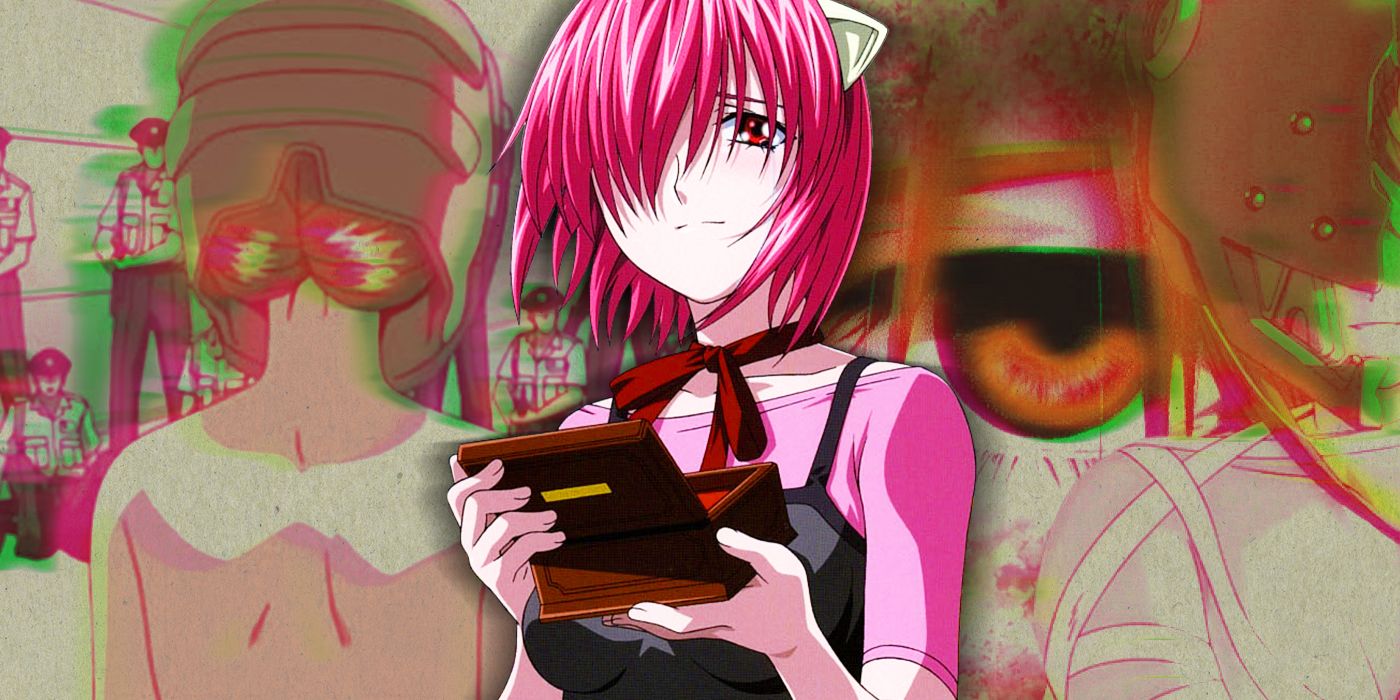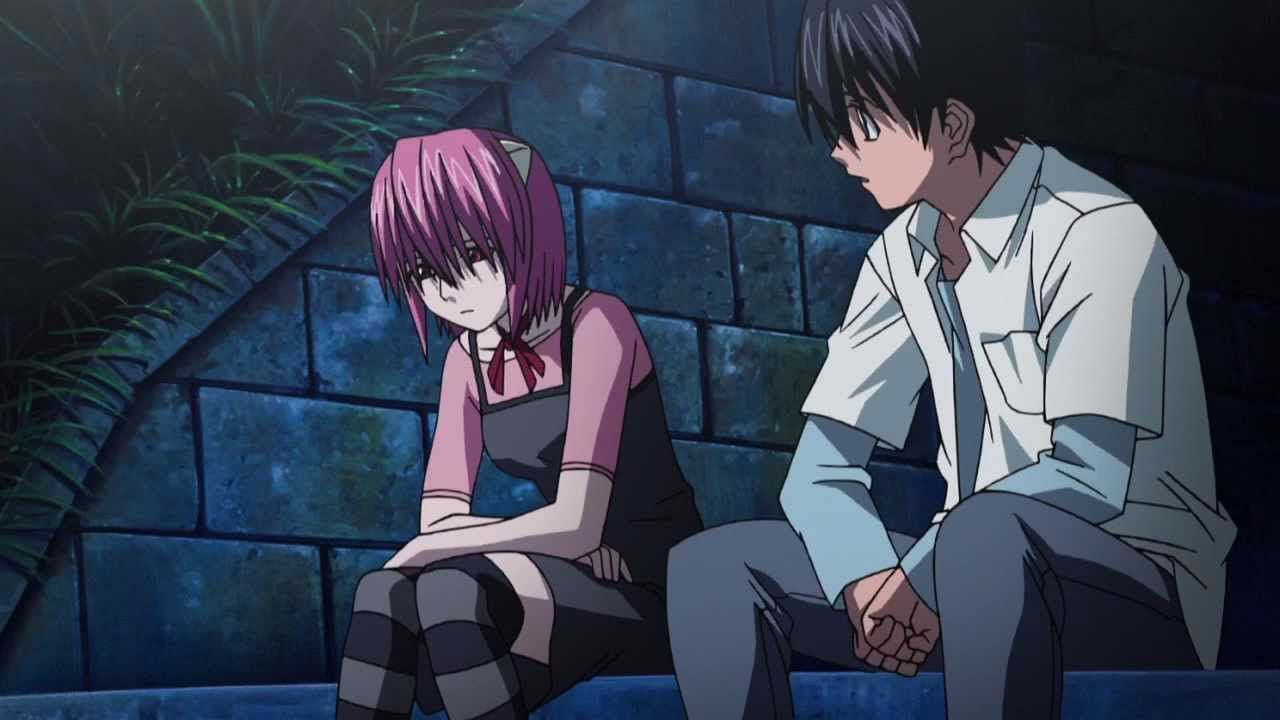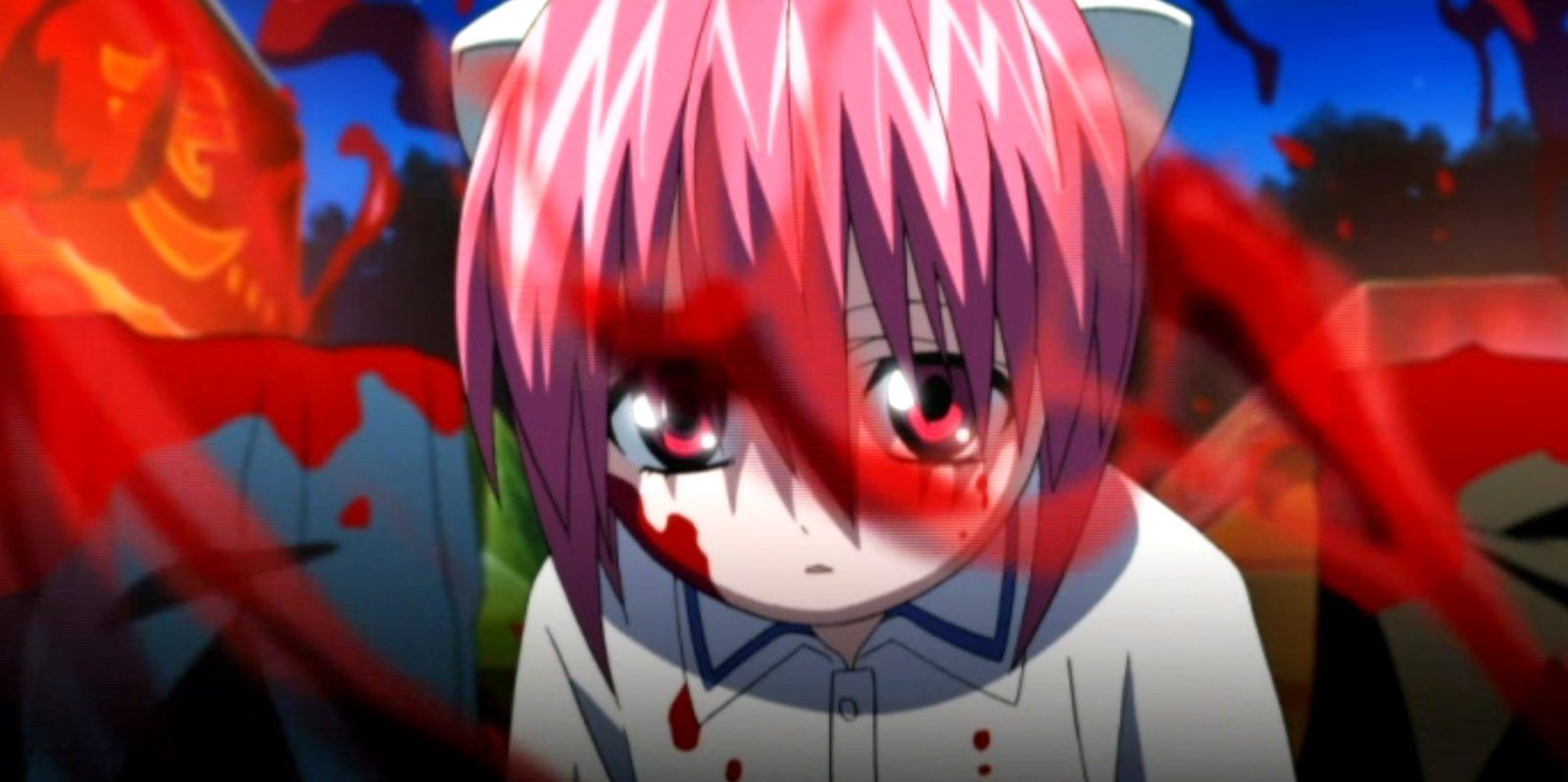Ever since its release in 2004, Elfen Lied has been one of the most famous, or rather, infamous anime of the past two decades. Known for its relatively cute main character and the incredibly violent circumstances she ends up in, Elfen Lied is an adaptation of a Shonen Jump manga. Sadly, much of the vastly superior manga's material would go unadapted in the shocking anime.
Elfen Lied is well-known for its grotesque levels of violence, but this fools some who are new to anime into thinking it's just as revered for actual quality. The show's reputation is deservedly infamous, as its trademark levels of gore are coupled with poor writing that attempts to be deep but only comes off as gratuitous and shallow.
What Is Elfen Lied About?
Elfen Lied revolves around a young girl named Lucy, a member of the mutant species known as Diclonius. These creatures are almost identical to humans, aside from horns on their heads and invisible telekinetic arms. Lucy is held in a research center for experimentation until she frees herself by massacring her captors. An injury sustained during this assault leads to her developing a second, more docile personality named Nyu.
After escaping, she's taken in by Kouta who lives nearby. Her journey from there is a strange mix of her slice-of-life adjustment to the outside world and trying to evade capture again while fending off other powerful Diclonius. Elfen Lied was described by director Mamoru Kanbe as being a "love story," but it's become known for anything but warm and tender feelings. In fact, it's most notable for its ultra-violent first episode which also features graphic nudity. Unfortunately for those hoping for a deep, introspective look into the human condition, things never quite progress beyond this pilot's themes.
Why Is Elfen Lied So Infamous?
As mentioned, Lucy is an increasingly violent protagonist whose actions in Episode 1 alone are notorious for how gruesome they are. A much better anime being known only for these elements would be unfortunate, but sadly this is all there really is to Elfen Lied. The series tries to be deep and philosophical, but this is hampered by sloppy-at-best writing, poorly developed characters and a tone that couldn't make up its mind as to what kind of show it even was.
This sees a series that begins with a horrendously savage massacre come off as more of a harem anime at times. Lucy's being a mass murderer is juxtaposed with ethical questions concerning right and wrong -- and how the treatment of certain groups or people molds their actions -- but the actual execution of these ideas is pathetic at the best of times. Said killing spree and the gore that ensues is almost comical after a certain point, making Elfen Lied seem more like an exploitative grindhouse snuff film than a series with anything intelligent to say.
Much of this can be blamed on the show's production and how much it deviated from the manga, which was not yet completed. This saw several key characters and concepts glossed over in the Elfen Lied anime adaptation, with even those that were used being poorly handled. One aspect that is amped up compared to the manga, however, is Lucy's power level, resulting in an even greater degree of destruction throughout the anime.
Elfen Lied as a whole comes off as a sort of try-hard, overly edgy attempt to be deep. This is accentuated further by its admittedly beautiful theme song "Lilium," which is operatic and has Biblical lyrics. The show's attempts to be both deep and heartwrenching fail to come close to the tone this song represents, and the series in general reeks of an anime industry still trying in vain to match the example set by Neon Genesis Evangelion. Sadly, Elfen Lied's notoriety has made many believe that it's actually a good and well-regarded series, but the reality is far different.



